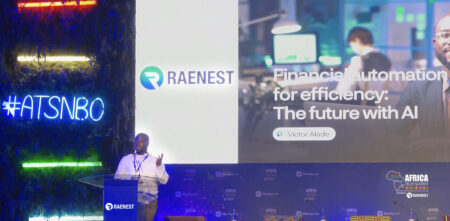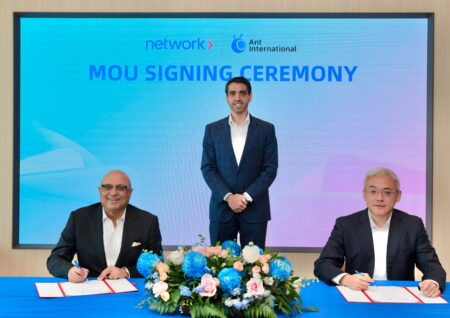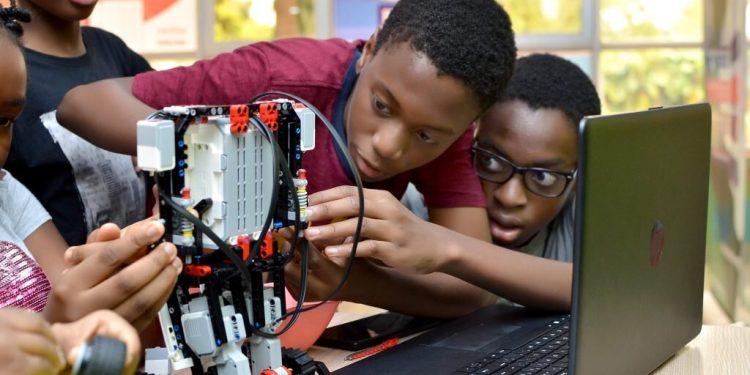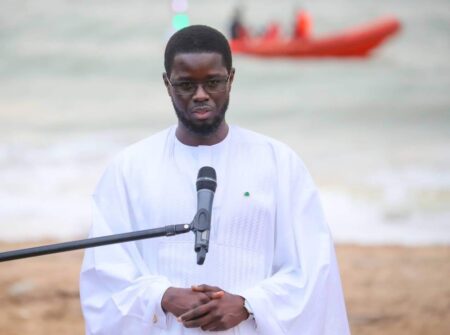- The AU and EU want to promote exchanges and collaboration with the private sector, enterprises, civil society organisations
- ‘Digital cooperation’ is a cornerstone of the AU-EU strategic partnership
- In line with the Global Gateway Strategy, the EU will scale up investments, support innovation, and promote digital rights
The African Union and the European Union have held talks to boost digital cooperation for sustainable development on the continent following the recent EU-AU Summit.
Representatives from AU and EU participated in the first Africa-Europe Digital for Development (D4H) Hub Multi-Stakeholder Forum last week that aimed to support digital transformation for sustainable development on the continent.
The two organisations want to promote exchanges and collaboration with the private sector, enterprises, civil society organisations, and support experts in digital fields from both continents. Participants have stressed that ‘digital cooperation’ is a cornerstone of the AU-EU strategic partnership.
According to Juatta Urpilainen, EU commission for International Partnership, the dialogue between EU and AU will be used to build a digital future: “Today we kicked off a much-needed dialogue with our private sector and civil society partners in Africa and Europe to build a shared digital future that leaves no one behind. This is the first step in implementing concretely the deliverables of the recent EU-AU Summit.
In line with the Global Gateway Strategy, the EU will scale up investments, support innovation, and promote digital rights. Bridging the digital divide is key in fighting inequalities. To achieve this, we must work together with all our partners in the digital ecosystem.”
The covid-19 pandemic has shown the importance of digital technologies in various sectors of Africa’s economy and in social development.
Dr. Amani Abou-Zeid, AU Commissioner for Infrastructure and Energy noted: “The COVID-19 pandemic has brought to the fore the importance of digital technologies, data, and innovation to keep our businesses, healthcare, education, and public services running among others. These exceptional times have also shown the urgency to invest in secure and affordable Africa’s digital infrastructure, digital skills, digital identity, data management and build on Africa’s innovation potential and entrepreneurship.”
The African Union, according to Dr. Abou-Zeid added, welcomes the enhanced partnership with the European Union that is based on respect, transparency, equal opportunity, a win-win approach. He also agreed on the tangible outcomes and further engagement with African and European stakeholders to accelerate the digital transformation of our continent.

The Africa-Europe D4D Hub Multi-Stakeholder Forum on Digital Transformation for Sustainable Development in Africa was held one month after the 6th European Union–African Union Summit, where leaders from both continents announced a EUR 150 billion Africa-Europe Investment Package, which amongst other priorities aims to accelerate Africa’s sustainable digital transformation.
“This ambition aligns with the EU Global Gateway, a strategy set out to boost smart, clean, and secure investments in connectivity, and the AU Digital Transformation Strategy for Africa 2020 – 2030, which aims to transform Africa’s economies and societies by harnessing digital technologies, the potential of data and innovation for the benefit of people. It also supports the outcomes of the 35th AU Summit, held from 5 to 6 February 2022, which called for the acceleration of Africa’s quality infrastructure development.” read a news release issued by EU-Africa Digital Hub today.
It is reported that only 33 per cent of African people use the Internet, compared to a world average of 63 per cent, closing the digital divide and connecting the unconnected meaningfully has become a top priority in AU-EU relations, said AU-EU digital summit participants adding that joint efforts are particularly needed to ensure that women, rural populations, and youth reap the benefits of the digital transformation.
According to AU’s Digital Transformation strategy, momentum is gaining for a digital strategy for Africa. Most AU Member States have developed ICT policies, work has already been done with national governments to identify and address barriers to harmonization of laws and regulations in various sectors, mobile phone availability and becoming more affordable, Sustainability of growth of Internet among other advantages.
AU-EU digital hub states, a safe, sustainable, and inclusive digital transformation holds a great potential to support a green recovery and a more resilient economy.” The AU-EU digital partnership can help address the pressing need to expand and deepen regional value chains and harmonise policies, legislation, and regulations, as well as safeguarding data sovereignty.” It added in a press statement released on Monday.
African Union-European Union Digital for Development supports African institutions
Participants at the forum also stressed the need to invest in digital skills to exploit the potential of digital innovation for decent job creation in the digital world. With 70 per cent of Africa’s population under the age of 30, digital entrepreneurship offers untapped opportunities for youth. Best practices were identified to steer multi-stakeholder collaborations for digital skills development and support of local innovation ecosystems.

The African Union – European Union (AU-EU) Digital for Development (D4D) Hub supports African institutions to create an enabling environment for an inclusive digital transformation. The project provides demand-driven technical assistance, promotes knowledge sharing, and facilitates dialogues.
The AU-EU D4D Hub is a flagship Team Europe project, co-funded by the European Union and jointly implemented by eight European organisations. It is part of the D4D Hub, an EU-led platform that creates and leverages partnerships to shape a sustainable digital future worldwide
AU and the EU delegates have jointly agreed on the importance of digital technologies, data, and innovations as drivers for inclusive job creation and sustainable development.
In December 2018, both parties launched the EU-AU Digital Economy Task Force aimed at identifying concrete policy recommendations and proposing concrete actions to address the principal barriers and increase cooperation in the digital field.
Read: Ethiopia’s economy cannot hold with more conflict










